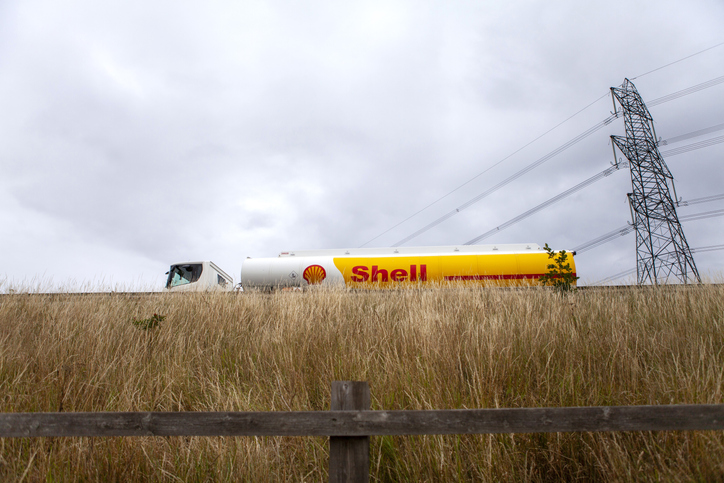ii view: Shell slashes costs amid shift to low-carbon energy
Resizing the cost base is vital, and there’s a 5% dividend yield while investors await return to growth.
30th September 2020 11:28
by Keith Bowman from interactive investor
Resizing the cost base is vital, and there’s a 5% dividend yield while investors await return to growth.

Third-quarter guidance and update
- Cutting up to 9,000 jobs
- Production expected to be between 820,000 and 860,000 barrels of oil equivalent per day (boepd)
- Sales volumes forecast to be between 4 million and 5 million barrels per day
ii round-up:
Oil giant Royal Dutch Shell (LSE:RDSB) today announced up to 9,000 job losses as it continued its transformation to becoming a low-carbon energy producer, a move accelerated by the coronavirus pandemic.
The staff losses of between 7,000 and 9,000 posts by the end of 2022 are expected to contribute towards annual savings of between $2 billion to $2.5 billion.
Shell shares were little changed in UK trading having more than halved year-to-date. BP (LSE:BP.) and Exxon Mobil (NYSE:XOM) shares have also halved, while shares for Chevron (NYSE:CVX) and Total SE (EURONEXT:FP) are down around 40% in 2020.
The price of Brent crude is down close to 40% year-to-date, with pandemic lockdowns and grounded airline fleets taking their toll.
Arch-rival BP previously announced 10,000 job losses as it pursues its own move to become a low-carbon energy producer.
Guidance outlined by Shell ahead of its late October third-quarter results varied little from that given alongside July second-quarter results.
Production is expected to be between 820,000 and 860,000 boepd, while sales volumes are forecast to be in a range between four million and five million barrels per day. The Covid-affected estimates contrast with 2019’s pre-pandemic third-quarter numbers of 930,000 and 960,000 boepd and sales volumes of between 6,700 and 7,350 thousand barrels per day.
ii view:
Shell’s operations spread across its upstream, integrated gas and new energies and downstream divisions. Its new energies business combined with integrated gas, explores emerging opportunities, and invests in those it believes offer sufficient commercial value. It focuses on new fuels for transport, such as advanced biofuels, hydrogen and charging for battery-electric vehicles. It also concentrates on power from low-carbon sources such as wind and solar as well as natural gas.
Today’s job losses equate to potentially just over 10% of its 80,000-plus workforce. Margins are lower in the power and renewable energy sector, so reducing organisational complexity and providing a more efficient and lower cost base, to do battle with both existing players and others like BP, will be vital.
For investors, the prior decision to cut the dividend proved a major blow. Lower shareholder returns are considered appropriate in the new world of potentially lower oil demand due to Covid-19. Restructuring costs also continue to hinder as it increasingly focuses on low carbon energy.
But, formed in 1907, Shell’s long track record of dealing with volatile energy demand and prices cannot be ignored. And despite its first dividend cut since the Second World War, an estimated dividend yield of around 5% is still highly attractive in today’s ultra-low interest rate era. In all, Shell’s position as a core portfolio constituent, for now, still looks deserved.
Positives:
- Rebased but sustainable dividend payment
- Previous purchase of BG Group improved both its product diversity & climate change credentials
Negatives:
- Demand for oil & gas is now expected to be lower
- Competition in its new focused arena is increasing
The average rating of stock market analysts:
Buy
These articles are provided for information purposes only. Occasionally, an opinion about whether to buy or sell a specific investment may be provided by third parties. The content is not intended to be a personal recommendation to buy or sell any financial instrument or product, or to adopt any investment strategy as it is not provided based on an assessment of your investing knowledge and experience, your financial situation or your investment objectives. The value of your investments, and the income derived from them, may go down as well as up. You may not get back all the money that you invest. The investments referred to in this article may not be suitable for all investors, and if in doubt, an investor should seek advice from a qualified investment adviser.
Full performance can be found on the company or index summary page on the interactive investor website. Simply click on the company's or index name highlighted in the article.